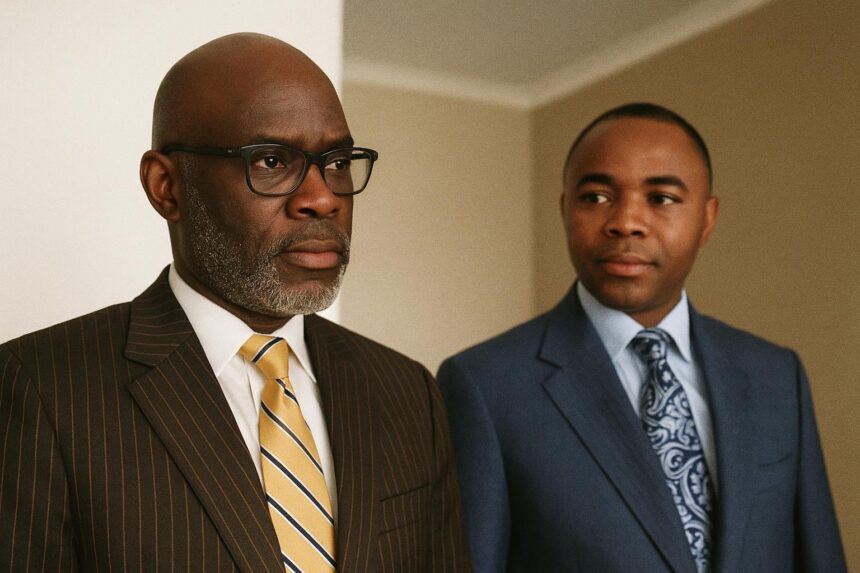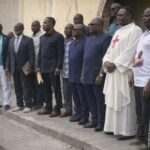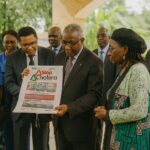Rising Political Temperature in the Pool
With Congolese voters set to return to the polls in March 2026, the Pool region again attracts intense diplomatic attention. Activists in the diaspora voice unease over the possible candidacy of Pastor Frédéric Bintsamou, known as Ntumi, whose militia activity scarred communities.
Their manifesto, circulated online in early 2024, insists that any campaign must not revive memories of the 2016 clashes. The signatories, citing past displacement figures from Caritas and the United Nations, warn that even rumors of renewed pursuit can trigger premature population movements.
Evolving Status of Pastor Ntumi
Ntumi’s legal status, however, has evolved. In 2017 the government and his representatives signed a cease-fire with disarmament clauses. According to Interior Ministry communiqués, over 6,000 weapons have since been collected, and key checkpoints in Kindamba and Mindouli were dismantled (Ministry statement, 2022).
The Congolese High Commission for Reintegration reports that nearly 2,800 former combatants from the Ninjas, Ntumi’s movement, have completed vocational courses in masonry, carpentry and agribusiness. European Union observers praised the programme’s transparency during a field mission last year (EU observer report, 2023).
Government Security and DDR Progress
Government advisers view a potential Ntumi candidacy as a stress test for the reconciliation process rather than an existential threat. One senior official, requesting anonymity, noted that “ballots are healthier than bullets” and highlighted planned security deployments to reassure citizens without creating a climate of intimidation.
Still, memories remain raw across the Pool’s verdant hills. The World Bank estimates that the 2016–2017 fighting destroyed infrastructure worth 20 million dollars, including bridges on National Road 1, a lifeline linking Brazzaville to the port of Pointe-Noire (World Bank country update, 2019).
Grass-Roots and Diaspora Perspectives
Local clergy, long involved in discreet shuttle diplomacy, encourage restraint on every side. Bishop Bienvenu Manamika told reporters in Kinkala that parish networks are ready to host dialogue workshops for youths “so that frustration does not become another excuse for arms” (Kinkala diocesan bulletin, 2024).
In Brazzaville, constitutional lawyers debate whether Ntumi, who once held the rank of general delegate for peace, fulfills residency requirements. The electoral commission has not published final guidelines, but officials suggest biometric enrollment will be compulsory for all aspirants, limiting controversy over voter rolls.
Diaspora voices, particularly the MBoongi collective based in Europe, argue that symbolic gestures from both Bintsamou and the state could reduce anxiety. They propose a public tour of reconstructed schools and clinics, followed by joint prayers with displaced families now resettled along the Congo-Ocean railway.
Economic and Developmental Implications
Economists suggest political calm in the Pool would unlock stalled agricultural corridors. Maize and cassava from Mayama could reach urban markets faster, lowering food inflation that hit 6.8 percent last year, according to the National Institute of Statistics, and supporting Brazzaville’s broader poverty-reduction strategy.
Foreign partners appear willing to assist. The United Nations Development Programme has budgeted three million dollars for community policing initiatives, contingent upon an incident-free campaign season. French officials privately confirm interest in co-financing rural electrification if transport corridors remain open (UNDP project note, 2024).
Narratives, Monitoring and Legal Frameworks
Some analysts caution against framing every development in the Pool through a security lens. Political scientist Obambé Tchicaya writes that over-securitized narratives can stigmatize ordinary traders and undercut investor confidence more than sporadic skirmishes themselves (African Affairs journal, 2023).
Across Congo-Brazzaville, civil society coalitions are assembling non-partisan observation teams. The Episcopal Conference plans to deploy 1,500 monitors, complementing state-run CCTV in major towns. International Crisis Group researchers note that such redundancy historically deters misinformation campaigns before they metastasize (ICG field commentary, 2024).
Within the presidential majority, strategists privately welcome a diversified candidate field, reasoning that inclusive ballots enhance legitimacy domestically and abroad. They emphasize, however, that all contenders must respect the December 2019 electoral code amendments forbidding armed escorts or inflammatory rhetoric within 200 meters of polling sites.
Scenarios for Peaceful Contestation
For Ntumi himself, the path to mainstream politics remains narrow but negotiable. His spokesperson, Pastor Jean Malonga, told this magazine that the former rebel “prefers ploughshares to Kalashnikovs” yet will only wp-signup.php if assured he can campaign nationwide without recurrent summonses.
Diplomats in Kinshasa, Luanda and Libreville discreetly explore contingency scenarios. A senior Central African regional envoy confirms that a multinational contact group could be reactivated within seventy-two hours should hostilities flare, though he stresses that Brazzaville’s current stability makes activation improbable (regional briefing, 2024).
Ultimately, the coming months will test Congo-Brazzaville’s reconciliation architecture. Whether Ntumi enters the race or remains a peripheral player, calibrated government outreach, diaspora advocacy and vigilant monitoring can consolidate the fragile peace dividend that citizens, investors and neighbors consider indispensable for long-term prosperity.
Observers agree that sustained communication—through community radio, town-hall assemblies and transparent social-media updates—may prove as decisive as troop deployments in preventing rumor cascades and ensuring citizens cast ballots without fear.






















